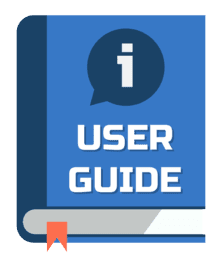Expanding Market Access Opportunity in Chile; Utilizing e-SKA
Abstract
The Indonesia-Chile Comprehensive Economic Partnership Agreement (IC-CEPA) implemented on August 2019. Indonesia get 0% tariff preference on approximately 6.704 products export to Chile. The aim of this paper is to describe the challenges and opportunities in accessing the Chilean market and how exporter can get advantage from IC-CEPA. Research method of this paper is descriptive qualitative through studying relevant literatures and secondary data analysis related to the research subject. The result show that a very high market competition, culture that emphasizes direct contact, language barriers, conservative of doing bussiness, and product certification requirement are some challenges when entering the market. On the other side, the opportunity is openness for private sector to government procurement, Chile act as a hub for exports to other Latin American countries, opportunities for organic and natural products, outdoor and sports products, etc. To get a tariff preference  0% on fisheries, agricultures and manufacturs products, exporter can apply a Certificate Of Origins (COO), type IC-CEPA form. Request and approval of this COO can be via electronic or e-COO. Recomendation for further research is to make analysis on specific main and potential products, such as challenges and opportunities in footwears, textils, organic products, etc.
Keywords: chile, market access, e-COO, export, challenge, opportunity
Keywords
Full Text:
PDFReferences
Biro Humas Kemendag. 2019. Terobosan Dagang, Indonesia-Chile CEPA Resmi Berlaku 10 Agustus 2019. https://www.kemendag.go.id/id/news/2019/08/05/terobosan-dagang-indonesia-chile-cepa-resmi-berlaku-10-agustus-2019
CIA. 2019. The World Factbook; Chile. https://www.cia.gov/library/publications/resources/the-world-factbook/geos/ci.html.
Dit. Perundingan Bilateral. 2019. Factsheet Indonesia-Chile Comprehensive Economic Partnership Agreement. Kementerian Perdagangan
Hill, Charles & Hult, G. Tomas. 2019. International Business: Competing In The Global Marketplace, 12th Ed. McGraw-Hill Education
ITC. 2019. Export Potential Map Indonesia-Chile. https://exportpotential.intracen.org/#/products/tree-map?fromMarker=i&exporter=360&toMarker=j&market=152
ITC. 2019. Bilateral trade between Indonesia and Chile. https://www.trademap.org/Bilateral_TS.aspx?nvpm=1%7c360%7c%7c152%7c%7cTOTAL%7c%7c%7c2%7c1%7c1%7c1%7c2%7c1%7c1%7c1%7c
Keegan, WarrenJ & Green, Mark. 2013. Global Marketing, 7th Ed. Pearson Education, Inc
OECD. 2019. Income Inequality (indicator). doi: 10.1787/459aa7f1-en
Trading Economics. 2019. Ease of Doing Business in Chile. https://tradingeconomics.com/chile/ease-of-doing-business
U.S. Department of Commerce's International Trade Administration. 2018. Chile Country Commercial Guide. https://www.export.gov/article?id=Chile-Market-Opportunities
Wikipedia. 2019. Chile. https://id.wikipedia.org/w/index.php?title=Chili&oldid=15214677.
Permendag RI Nomor 59/2019 tentang 2019 tentang Perubahan Kedua atas Permendag No. 24/2018 tentang Ketentuan dan Tata Cara Penerbitan Surat Keterangan Asal Barang Untuk Barang Asal Indonesia.
Refbacks
- There are currently no refbacks.
@2017-2024
Jl. Hayam Wuruk No. 34-38 Bandung
Politeknik STIA LAN Bandung
Powered by OJS (Open Jounal Systems)


